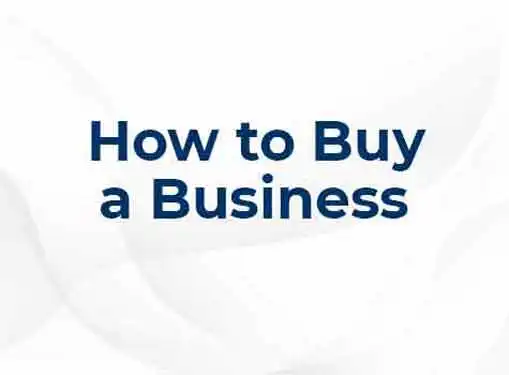Buying a Business
Steps in Buying a Business
Written by Samuel Muriithi for Gaebler Ventures
Just like the process of starting a business from scratch requires intense prior research and preparation, the decision to buy a business is no less rigorous. What are the steps that a potential business buyer should follow so as to go about this process correctly and successfully?
The first step in buying a business is to identify the business.

For whatever type of business you have in mind you must have a list of personal and financial objectives against which you will compare every business for sale opportunity. It's only a business that tallies with these objectives that will be deemed viable for consideration.
As a potential business buyer you have to scour for business opportunities that represent a potential for growth and profitability. Some of the common sources to get leads from include classified ads in local dailies, business brokers' listings and industry sources.
Once you have got a lead that interests you, set up a meeting with the contact/seller with an aim to getting the vital information. These details should include the business history, financial statements, reason for sale, and price. These should help you determine whether or not the business meets your initial objectives. If so, you can ask for a second meeting to probe for more information and to inspect the facility to ascertain if everything has been properly maintained.
The next step in buying a business is to create a checklist against which the following information must be provided: profit & loss statements and balance sheets for the last three years or from the date when operations started if the business is less than three years old; a list of all the assets that'll be transferred to the new owner, a statement detailing any legal proceedings against the business both in the present and past; a copy of the business mortgage or lease; and a list of all the suppliers.
The potential business buyer should then arrange for meetings with his/her lawyer and accountant so as to get their professional advice with respect to the information thus obtained. An on-site meeting with the premises landlord or mortgage holder is also necessary not only to assess the building's condition but to negotiate and fix terms wherever possible.
As you prepare to buy a business you should also spare time to observe how the business operates. In so doing you will be able to note how the enterprise relates with customers and how well or how badly the operations are managed in their entirety.
Having been satisfied that buying the business will be a good idea the potential business buyer should enter into negotiations with the owner to determine a fair purchase price. You should use the validity of the information and research done persuasively to make a counteroffer and be prepared with strong statements that'll show the seller why it's advantageous for him/her to accept your offer. Once an agreement has been arrived at your lawyer should draw up a sales agreement. You should be present when the seller takes a final assets inventory – only then can you sign the sales agreement.
Samuel Muriithi is a business owner in Nairobi, Kenya. He has extensive international business experience in the United States and India.
Share this article
Additional Resources for Entrepreneurs



Conversation Board
We greatly appreciate any advice you can provide on this topic. Please contribute your insights on this topic so others can benefit.